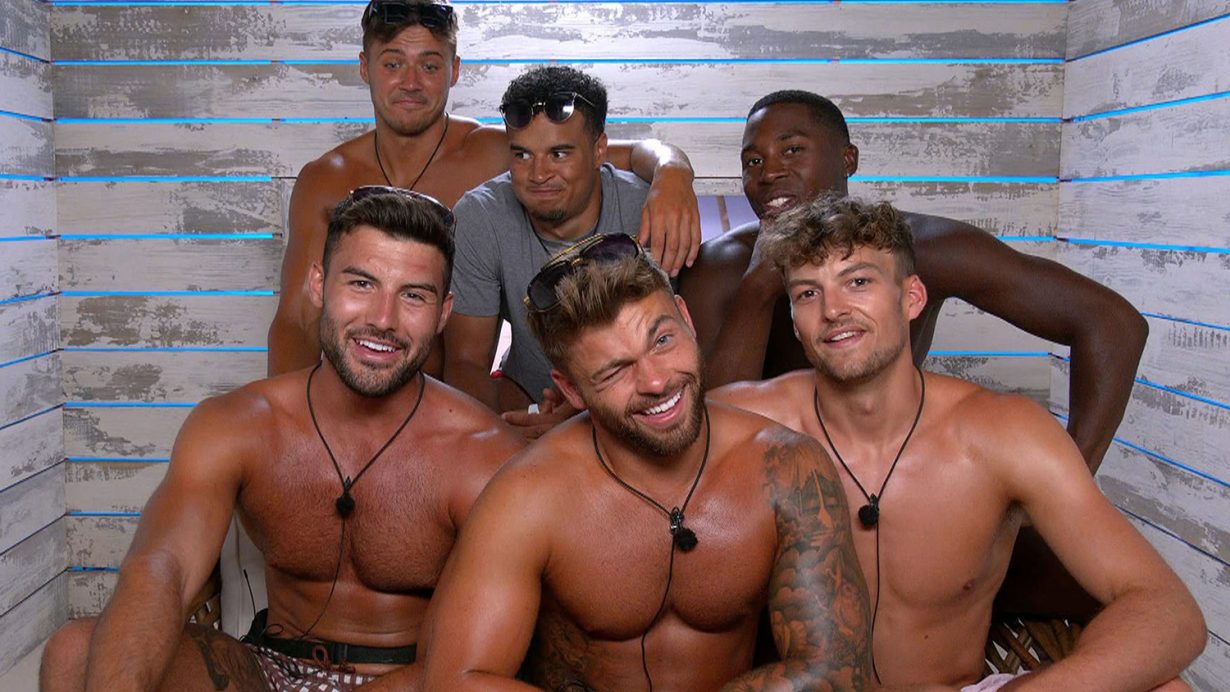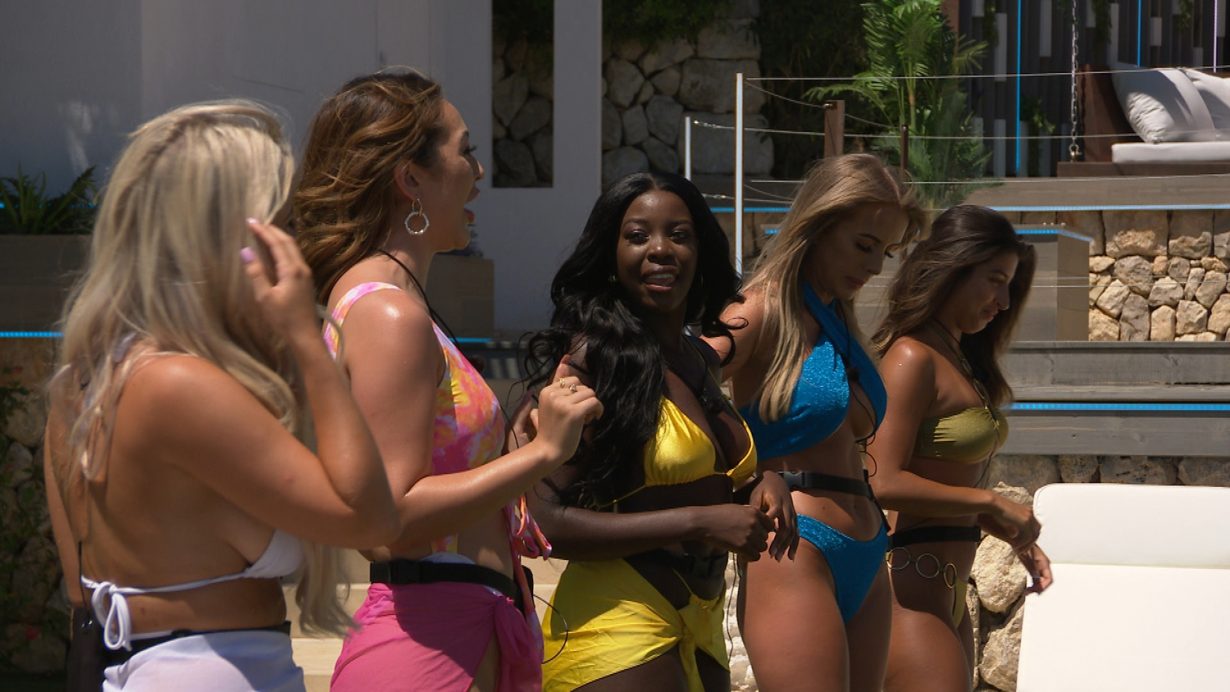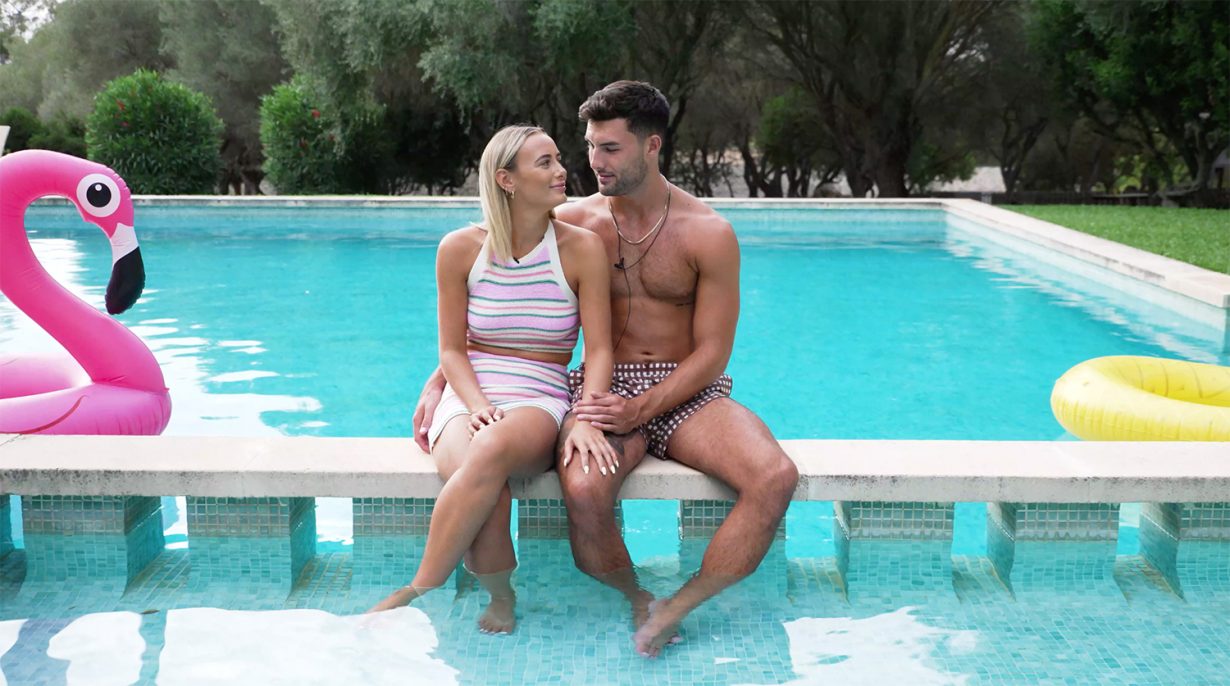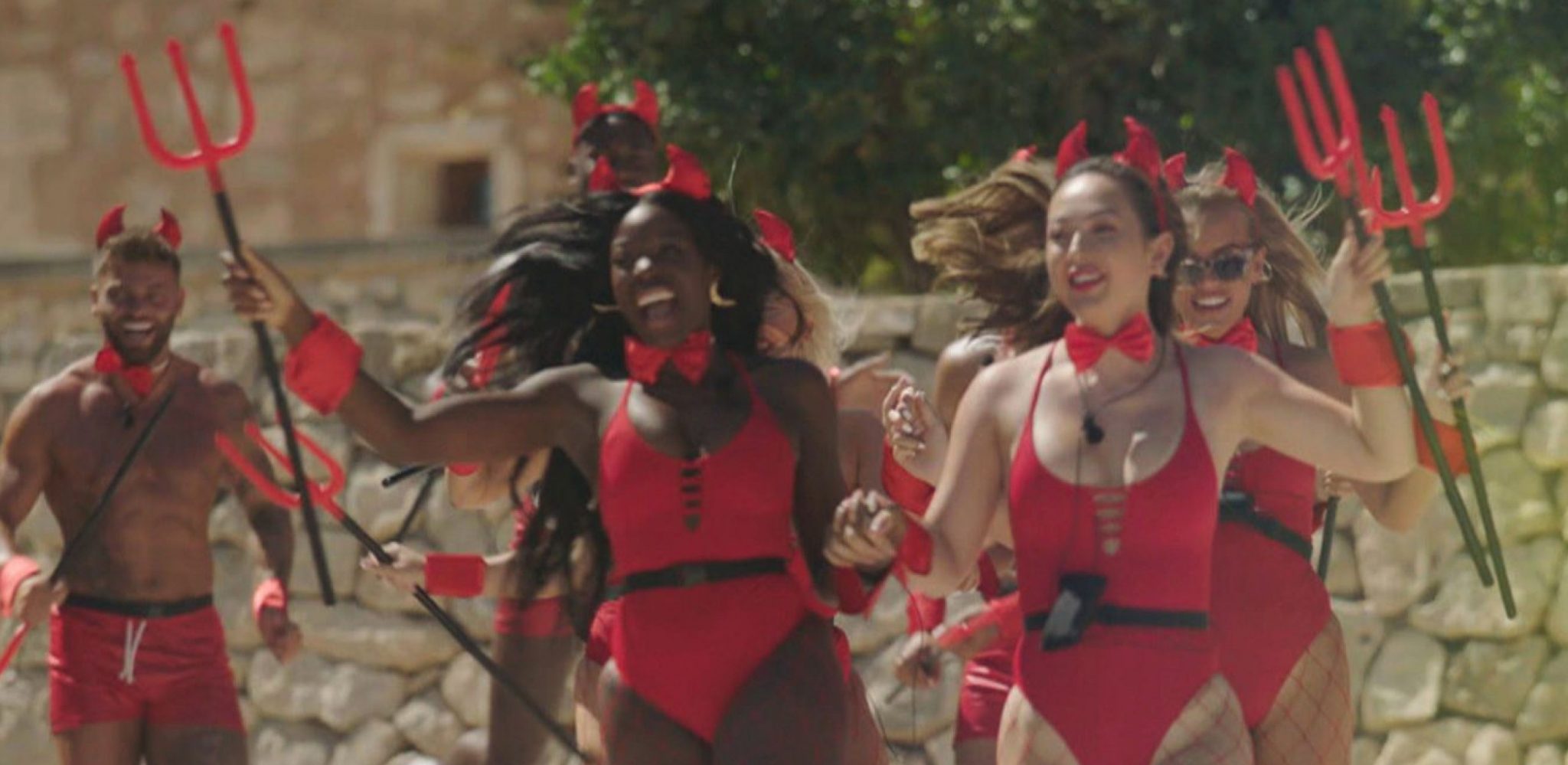Blaming the producers is almost too easy
Love Island first made its way into my life three years ago (having recently arrived in the UK). As of now, I have watched all 292 episodes of the British dating show (sometimes ticking off one or two in the middle of a workday), listened to Love Island’s ‘Morning After’ podcast more than I care to admit, and drink from a Love Island water-bottle (a gift). There’s no denying that I am obsessed with the show. Ask me about any obscure moment from a past season and I’ll recall it with ease.
For the uninitiated (where have you been?), Love Island is set in a Mallorca villa where scantily clad, generally ripped, predominantly straight, and mostly white British singles compete to ‘couple up’ in the name of love and a £50,000 cash prize (those who don’t win actually earn very little from their onscreen time, but tend make up for their ‘failure’ with lucrative brand deals and suchlike). Viewers are regularly invited to participate – voting for the winning couple via the official Love Island app and taking part in various other polls. The programme is an established cultural phenomenon – its aesthetic and language embedded in everything from memes to fast fashion.

But there is a darker side to the gameshow. There’s no denying that its vision of ‘love’ and romance is perpetuated via regressive, heteronormative, misogynistic, materialistic and superficial values. Despite fans’ demands for a more diverse show, the producers have continued to rely on a formula of straight, white, and conventionally attractive contestants (blonde women; tall, dark, and handsome men), coupled with outrageous behaviour, to drive their commercial hit. Earlier this year ITV commissioner Amanda Stavri described the concept of including LGBT contestants as ‘a sort of logistical difficulty’.
The producers may have dialled down the over-intoxication and constant smoking of earlier seasons when these threatened viewership (with a two-drink limit and smoking off-camera), but the spectacle still runs on a potent blend of anger, insecurity and heteronormativity. This season’s Aaron Francis ‘got the ick’ when love interest Sharon Gaffka made her professional ambitions clear (Gaffka later claimed that the producers had also edited out conversations where she discussed being bisexual and mixed-race while dating on the ‘outside’). And that’s without even tackling the programme’s connection to a string of tragic suicides of former contestants and its host.
Why then, you might reasonably ask (I certainly do), do I and millions of other viewers continue to tune in? Part of the answer surely lies in how the show’s producers have identified and commodified our emotions – empathy, prurience, take your pick – and given us near-unlimited access to having them toyed with by airing episodes every night, simultaneously fulfilling the desire for instant-gratification and connection (however artificial) to others. It’s not that taxing either. Despite their constant mode of Big Brother-esque surveillance, the producers artfully consolidate a day’s worth of footage into a digestible hourly episode, carefully instigating and editing each new moment of dramatic tension, giving us just enough while whetting our appetite for more.

It can be a balancing act – this season, fans slammed the producers for disregarding the mental health of contestants while continuously stirring the pot (the new ‘Movie Night’ challenge, for example, showed compromising clips of islanders to one another after many couples had just recovered from their previous emotional upsets). But, let’s be real, is anyone watching Love Island to see people falling in love without complications? The saccharine declarations of romance are often so cringe-worthy that I tend to hit fast-forward, and these relationships often fail ‘on the outside’ anyway.
In recognition of all that and in anticipation of potential viewer fatigue, this season’s producers have been on a mission to concoct a state of almost-constant calamity. I squealed as Hugo Hammond called out Toby Aromolaran for ‘pieing’ Chloe Burrows after ‘cracking on’ with bombshell Abi Rawlings; I relished the moment when Liberty Poole was shown the horrible comments that then-boyfriend Jake Cornish made about her earlier in the season; I gasped as Lillie Haynes exposed the extent of Liam Reardon’s disloyalty to Millie Court while in Casa Amor (another villa in which a different set of rival contestants act as disruptors to the existing ‘couples’). And it was only as I watched Faye Winter have another emotional meltdown (likely rooted in some personal trauma) that I ended up questioning my own complicity in all this.

Blaming the producers is easy, given they have commodified popular interest while exploiting Love Island participants to make as much money as possible at the expense of the contestants’ own mental health. I’ve wondered too about the participants’ agency and role within this spectacle: how their relentless performance (and general unpreparedness for the following inundation of attention) affects them as they are thrust into the spotlight. What does Love Island’s success mean in relation to those who consume it? Within this contemporary and historic moment of reckoning, should there be any accountability in our submission to Love Island’s mindless fantasy?
I’ve recently begun feeling some ambivalence towards the TV show; not because of the squandered time or even its mindlessness, but because of my own hypocrisy. Entertainment aside, the values Love Island perpetuates are incompatible with the ones I like to think I maintain, and plenty of us who watch the show would balk if confronted with these attitudes in our own daily lives. We are, nonetheless, content to watch them played out by and to strangers onscreen. This season has introduced a new sense of internal conflict as I watched the moments of (real, keenly felt) emotional pain described above, while realising that my delight in the manufactured chaos was in some part its cause. Love Island’s intention to create emotional connections between its contestants and viewers is also its own gravedigger: the same empathy for these people that has made the show a success has triggered my reluctance to continue my own investment in it.
Sure, entertainment can be a distraction from life; but art and culture have always been an extension of reality, not its absence. Yet the task of reconciling the problematic nature of the programme with my own adoration of it almost makes me want to relinquish any serious thinking – after all, Love Island never gets that deep. And the show got me through some difficult times as a beacon of levity. Still, my amusement has been at the expense of others. With some hesitancy, I’m in the process of trying to unlearn my love for it. And I’m curious to see whether or not I’ll be able to look back on it with fondness in time.
